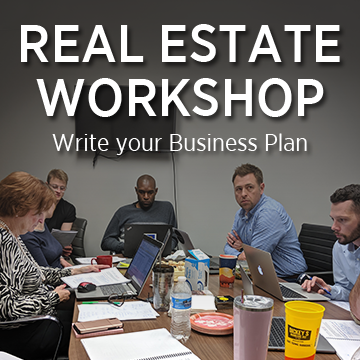Here’s why I highly recommend reading these three books.
Part of my growth plan as a real estate agent includes reading two to three books a month. Here are three books I’ve read that can benefit you and enhance your growth plan.
The first is “Big Money Energy” by Ryan Serhant. It’s always fantastic to read or listen to a book that’s coming from the perspective of a Realtor. Not many Realtors have written books, and not many of those books are well-written, entertaining, engaging, and/or motivational. This one, however, is very good and I highly recommend checking it out.
Next is “The Psychology of Money” by Morgan Housel. Many of us got into real estate because we loved the idea of what real estate could do for us financially. You have the option of helping dozens of families buy and sell homes and earn some pretty large commissions along the way. According to the psychology of a lot of Realtors, though, you have to drive a big, expensive car and live in a big, expensive house. While living in a big, expensive house does allow you to farm a neighborhood with clients in higher price points, “The Psychology of Money” says the smartest thing we can do with money is keep it invested so it grows over time.
If you’re like me, you’ve seen different ideas out there and have wanted to hit home runs. Perhaps you felt like you were falling behind and weren’t winning the money game, so you wanted to get ahead by hitting a huge home run. Is hitting one home run and striking out three or four times really better than consistently hitting awesome singles and doubles, though? This book explains why the best thing you can do is focus on living below your means and staying as cash-heavy as possible so that when an opportunity arises, you have the ability to take advantage of it.
The last is “Who Not How” by Dan Sullivan. Many folks in real estate want to be a star agent, and we sometimes joke about how the “star” in this case means dropping off a lockbox on one side of town, showing a property on the other side, doing a listing appointment on another side of town, and so on and so on. Before you know it, you’re all over the city and you’ve only gotten a little done. Many of these tasks were things you perhaps weren’t the best at, and maybe you have enough money to hire others to do them.
In real estate, you have to figure out your cost per hour. If your goal is to make $100,000 per year, for example, you have to calculate the gross net you need to earn, and then divide that by 2,000 hours (i.e., how many hours there are in a year) to find out your hourly wage. If you’re taking on tasks like snapping your own photos, that’s taking time away from your goal, and you could potentially hire a professional who’s better than you are at it to do the job.
I used to be the person who would stay in the office until 2 a.m. each night to ensure my contract paperwork was updated because I felt like it didn’t make sense for me financially to hire a transaction coordinator or assistant. However, I could’ve saved myself a lot of heartache and spent a lot more time with my family if I only explored my leverage options. “Who Not How” gives you some great examples of leverage options.
If you have questions about these books or want to discuss how to build a financially successful future, don’t hesitate to reach out to me. I’d love to hear from you.





